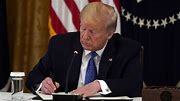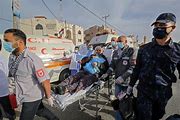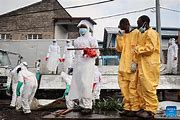A global health crisis was narrowly averted recently, as a critical program faced the threat of disruption. The U.S. government granted an emergency waiver to safeguard HIV treatment for millions of individuals across 55 countries. This last-minute intervention came in response to concerns that a temporary freeze on U.S. foreign aid could jeopardize essential health services, particularly those aimed at combating the HIV/AIDS epidemic.
Secretary of State Marco Rubio announced the emergency waiver, which allows funding from the U.S. President’s Emergency Plan for AIDS Relief (PEPFAR) to continue flowing uninterrupted despite a broader suspension of foreign development assistance. PEPFAR stands as one of the largest global initiatives dedicated to tackling the HIV/AIDS crisis, providing crucial antiretroviral therapy to over 20 million people worldwide.
The recent pause in U.S. development aid was instigated by a January executive order calling for a comprehensive review of its effectiveness and alignment with American foreign policy interests. This move had sent shockwaves through global health advocacy circles, with fears mounting that any interruption in HIV treatment could result in dire consequences.
In response to the waiver, Winnie Byanyima from UNAIDS expressed gratitude:
“UNAIDS welcomes this waiver from the U.S. government, which ensures that millions of people living with HIV can continue to receive life-saving medication.”
She emphasized how critical PEPFAR’s role is in this regard and how this decision has restored hope among those living with HIV.
PEPFAR, initiated by President George W. Bush in 2003, has been widely supported across party lines in Washington due to its significant impact on curbing the AIDS epidemic globally. Despite its success stories, PEPFAR has faced challenges in recent years regarding its financial scale and alleged indirect support for abortion services using some funds.
While this emergency measure secures ongoing HIV treatment programs, there are looming questions about other U.S.-backed global health initiatives such as maternal health programs and pandemic preparedness amidst the ongoing aid review process.
Global health leaders stress the importance of sustaining support for initiatives like PEPFAR to prevent any setbacks in progress made over two decades:
“Continued investment is essential to achieving the goal of ending AIDS as a public health threat by 2030,”
noted Ms. Byanyima.
The legacy and significance of PEPFAR have come under scrutiny amid recent funding uncertainties that have reignited debates about America’s role in global healthcare efforts. Some view these developments as part of a broader strategic shift in American foreign policy priorities towards competition rather than long-term development investments.
As discussions around aid stability continue, it remains imperative for programs like PEPFAR to receive unwavering support moving forward—ensuring continuity not only saves lives but also upholds decades-long progress against one of humanity’s most pressing health challenges.









Leave feedback about this